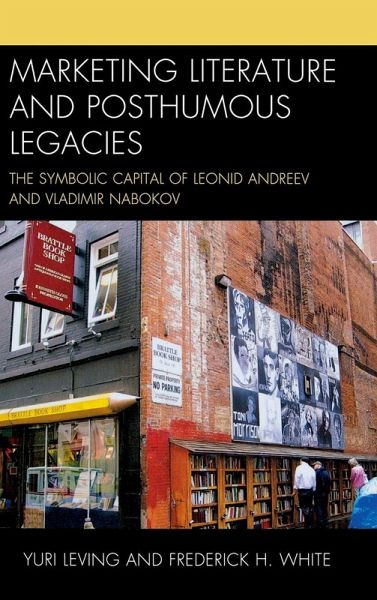
Marketing Literature and Posthumous Legacies
The Symbolic Capital of Leonid Andreev and Vladimir Nabokov
Versandkostenfrei!
Versandfertig in 1-2 Wochen
131,99 €
inkl. MwSt.
Weitere Ausgaben:

PAYBACK Punkte
66 °P sammeln!
Literature is not only about aesthetics, but also almost equally about the successful marketing of an author and his literary works. Ever since the two great Russian authors, Leonid Andreev and Vladimir Nabokov, created their own literary capital, cultural merchants have been preoccupied with the promotion of their respective posthumous legacies, maintaining the intricate network of personal interests that drive the preservation of literary reputations.














